Written by Felicity
We’ve talked a lot recently about the ultimate breakfast tea – we have shown you how to make it at home, paired it with cream tea, told you whether to add the milk first or second, and explained why we think that tea from Assam makes the ultimate cup. Understandably it’s left a few people wondering where Ceylon Breakfast stands if Assam is the ultimate… In fact we love tea from Sri Lanka and for some of us in the team, Ceylon Breakfast is our ultimate breakfast tea. So, we’ve put together a short guide to help you decide which one’s for you – will it be robust Assam or smooth Ceylon?
As a reminder, when we’re talking about the ‘ultimate breakfast tea’, we’re always talking about single origin loose tea. It’s the only way to get distinctive character and taste, it gives better returns for tea producing communities and it’s better for the environment. We’re also only looking for black teas which have enough strength, body and flavour that all comes together to go well with milk.
The strength, body and flavour of teas are determined by the varietal and cultivar of the tea bush, where it’s grown, and when and how the leaves are processed. For Ceylon and Assam Breakfast, both are predominantly the “Assamica” varietal of the tea bush and the leaves are similarly processed. The biggest impact on flavour is coming from the origin and the time that the leaves are picked and processed.
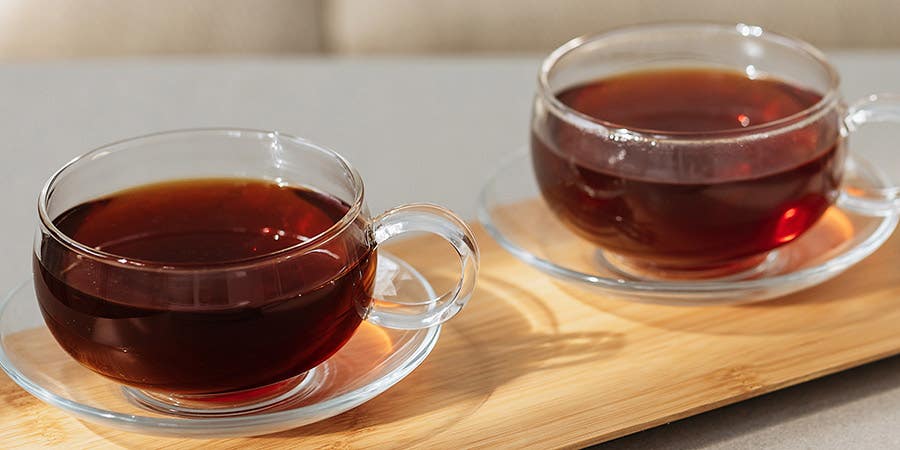
First up, what is the difference between the origins?
Our Assam Breakfast is from the Assam state in North East India, where the nutrient rich soil is fed by the Brahmaputra river valley. The water flows in deep gorges through the Himalaya into Assam, the Brahmaputra is important to many for irrigation and transport - and it's sacred to Hindus in its lower reaches. The indigenous ‘assamica’ varietal of the tea bush, with its dark green and glossy large leaves, is grown at a fairly low elevation of around 60m. There is typically lots of monsoon rainfall in the summer and it’s a very humid and warm area.
Our Ceylon Breakfast is made from teas from two areas in Sri Lanka. Ruhuna is a low-growing area in the south west, which, like Assam, has very rich soils, and a warm and humid climate. By contrast, Dimbula, the other area that tea for our Ceylon Breakfast comes from, is at an altitude of over 1,250m above sea level and the terrain is rockier. This means that the tea bushes must struggle a bit more to grow and therefore grow at a slower pace.
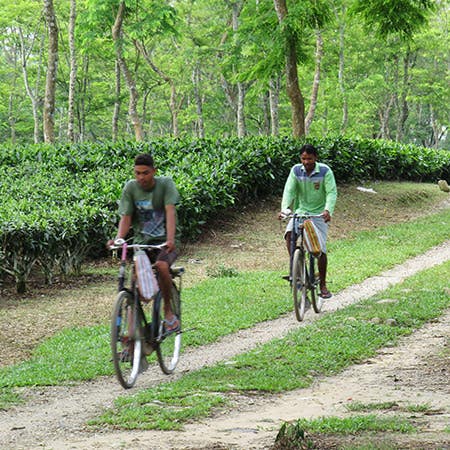
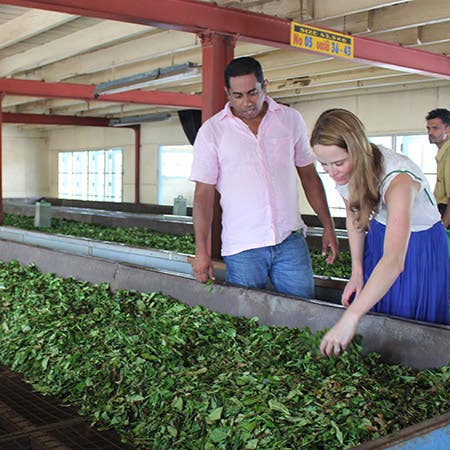
And the seasonality – how does that affect the tea?
In Assam we focus on the ‘second flush’ season which is a period of roughly two weeks in which the most distinctive tasting and sought after tea is produced. It is usually the first couple of weeks of June and is the sweet spot between the spring flush and the monsoon rains. The best tea buds and leaves will have a golden tipped appearance after they have been processed which is indicative of the rich, malty and dried fruit flavours that Assam is known for.
In Sri Lanka, the two teas are picked at different times of year. In Ruhuna, tea is picked and processed all year around. In Dimbula, the high quality season is from January to March. This is when the climate is warm but not too hot and dry, so the bushes grow at the right rate to develop the fragrances that we are looking for and the refreshing high notes, like citrus.
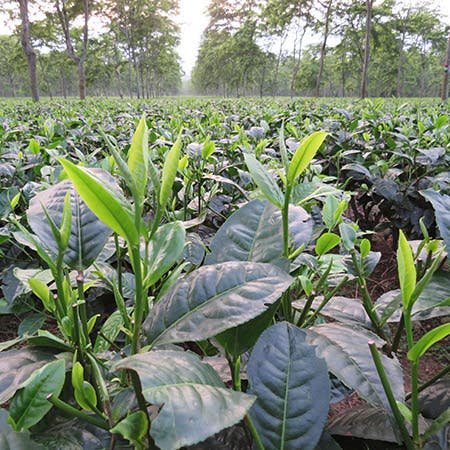
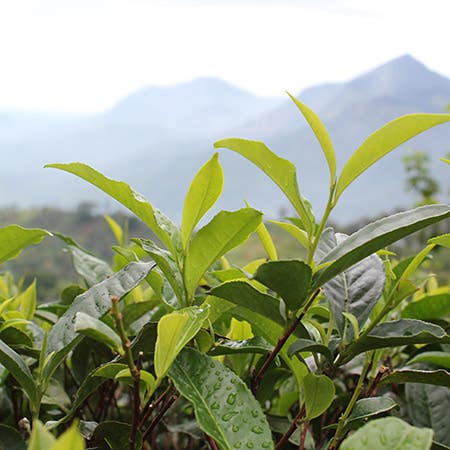
What's the difference in taste?
Assam Breakfast is very upfront in its strength. It starts with a warm, thick fragrance with notes of sweet spices, which complement the boldness of the infusion. The taste is very rich, with plenty of malt flavour and dried fruit. It has a mouth-coating, round texture. The finish is long and has a pleasant, lingering taste that really highlights the rich and robust character. It's highly assertive.
Ceylon Breakfast is more aromatic – it has a similar warmth, but it’s heightened by a sweeter, more crisp and refreshing character. As with Assam Breakfast, the infusion is thick in body with some maltiness, but there’s a distinct note of green cobnuts and a more delicate sweetness. The texture of the tea is smoother too, with a lighter body that leads into a long, refreshing finish.
Who are they for?
Ceylon Breakfast is smooth, refined and refreshing. It will be your ultimate cup if you prefer that smoother texture, lighter tannin structure and if you like your breakfast tea with some high notes – lightly citrus and floral – and you want some more obvious sweetness from the base notes.
Assam Breakfast is rich, assertive and full. It will be your ultimate cup if you prefer a more robust texture and a tea that feels brisker in your mouth. The flavour is heavier with riper flavours of malt and dried fruit.
And milk?
If you like lots of milk go for the Assam. Because of its assertive character, it can take more milk and is best with a richer milk, such as a whole dairy milk. If you prefer less milk or like to use a lighter milk, try Ceylon Breakfast, which with it's lighter body can take a lighter milk and less of it.
And milk alternatives?
For the Assam you'll need a barista style drink which is nice and thick (we like the Oatly Barista) so that the tea does not overwhelm the milk. Ceylon Breakfast will be a bit more forgiving to other alternatives, we'd still recommend Oatly though because the tastes pair well.


